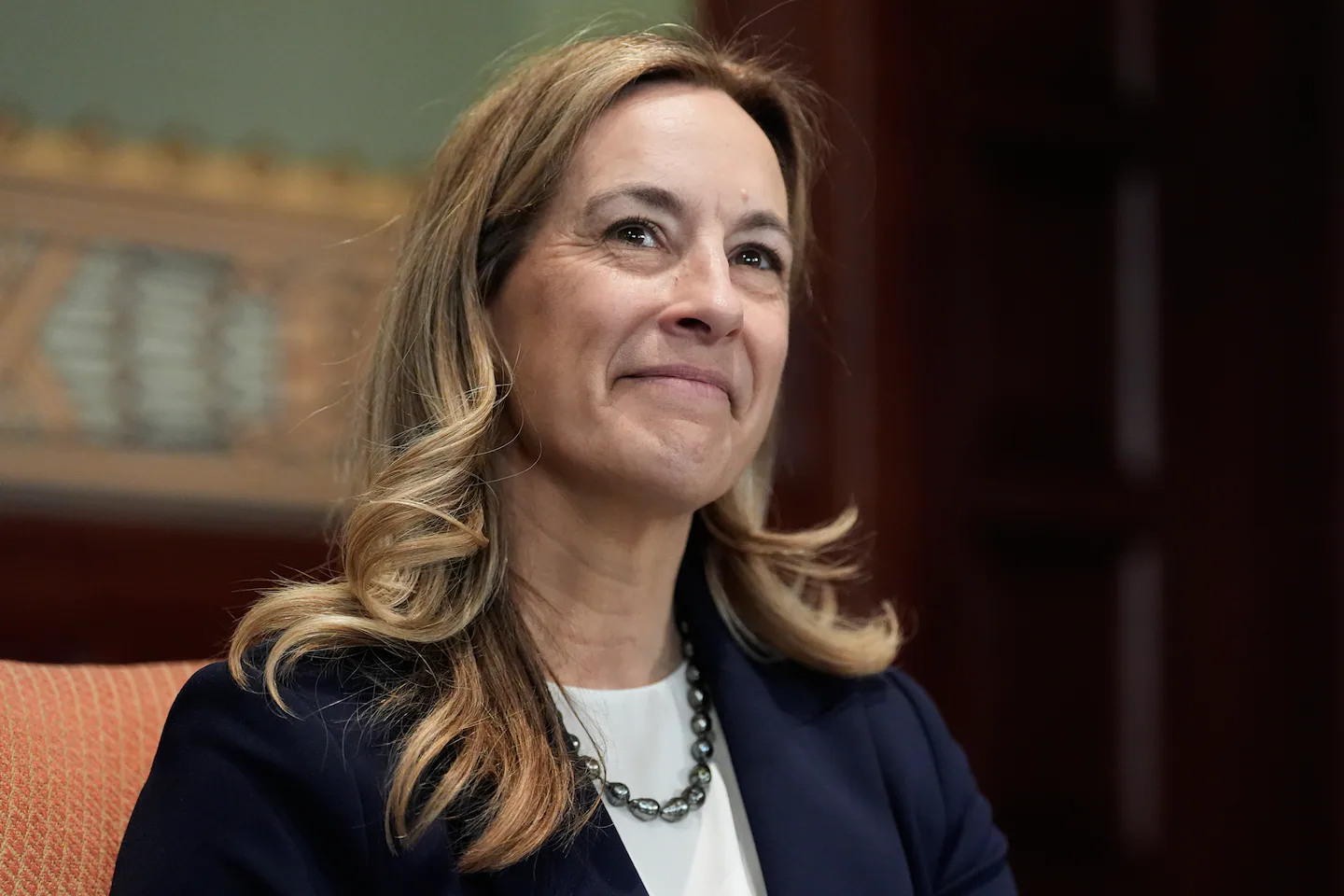Copyright The Boston Globe

📅 Nov. 18-19: From the future of corporate activism to the future of downtown, Globe Summit covers what’s next. SIGN UP HERE. President Trump announced a deal with Eli Lilly and Novo Nordisk to expand access to weight loss drugs and cut prices. Logan International is one of 40 airports where the Federal Aviation Administration says it will cut air traffic by 10 percent to maintain safety during the ongoing government shutdown. Conservative members of the Supreme Court on Wednesday appeared skeptical of President Trump’s sweeping unilateral tariffs during arguments in a case that’s a pivotal test of executive power. President Trump vowed during his 2024 reelection run to “make America affordable again,” starting on his first day in office. But most prices aren’t coming down, inflation has gotten worse, and Americans remain fed up with the high cost of living. They registered their frustration in Tuesday’s elections: Democrats won big races in New Jersey, Virginia, and New York City with campaigns focused on affordability. “New York, tonight you have delivered a mandate for change. A mandate for a new kind of politics. A mandate for a city we can afford,” Zohran Mamdani told supporters after a historic victory that will make him New York City’s first Muslim mayor and youngest leader in more than a century. Don’t just take a 34-year-old democratic socialist’s word for it. “The warning to Republicans in Tuesday’s election results is that Democrats are turning the tables on affordability, especially when they steer clear of leftist cultural snares,” wrote the conservative editorial board of The Wall Street Journal. Inflation has slowed considerably since peaking in 2022, but overall prices as measured by the Consumer Price Index are up 25 percent from just before the pandemic. Food has climbed nearly 30 percent. Rents have risen by close to the same amount. And piped natural gas bills have soared nearly 47 percent. The CPI rose 2.4 percent in September 2024 compared with a year earlier, the slowest pace since March 2021. But by this September, the rate was back to 3 percent. (The CPI report for October has been delayed by the government shutdown.) Trump’s tariffs are partly to blame for the reversal, though their impact has been muted as companies eat some or all of their higher costs. Tens of millions of Americans face higher health insurance premiums, while even more may lose food assistance or be kicked off Medicaid as a result of GOP policies. The president’s failure to deliver on his campaign promise of lower prices is hurting his poll numbers. More than 60 percent of respondents disapprove of his handling of inflation, according to the RealClearPolitics average of public polls. His disapproval rating on the economy was 54.8 percent, even though growth was a strong 3.8 percent in the second quarter and layoffs remain relatively low. Denial has been the president’s strategy for dealing with sticky inflation — it remains above the Federal Reserve’s preferred rate. “Our Economy is BOOMING, and Costs are coming way down. Affordability is our goal,” Trump said Wednesday on his social media platform. Could pocketbook relief be the issue that bridges the ideological gap between progressives like Mamdani and moderate Democrats like Abigail Spanberger, the Virginia governor-elect, and Mikie Sherrill, who won New Jersey’s race for governor? The Democrats clearly hope so. “You all chose leadership that will focus relentlessly on what matters most: Lowering costs, keeping our communities safe, and strengthening our economy for every Virginian,” Spanberger said at an election-night party. Spanberger put kitchen table issues — expensive housing, health care, and energy — at the center of her campaign. Sherrill said she would declare a state of emergency to bring down New Jersey utility bills. Mamdani pledged to freeze rents, reduce child care costs, open city-owned grocery stores with lower prices, and make buses free. It all sounds appealing — but far from easy. The pressure is now on Democrats to deliver if they want to carry Tuesday’s modest successes into the 2026 midterms. “I’m glad they’re down and I’m glad this is behind us, but I felt like it was an ambush.” — Restaurant owner Ken Osherow, after he took down photos of mobsters James “Whitey” Bulger and Stephen “The Rifleman” Flemmi from his Savin Bar and Kitchen in Dorchester. The decorating decision sparked a local outcry and made national headlines. The nays have it: Voters in Winthrop handed a decisive victory to a slate of Town Council candidates who pledged to stonewall any plan to comply with a state law that mandates communities served by the T make room for more housing, The ayes have it: Nantucket voted to broadly legalize short-term rentals at a special town meeting, ending a yearslong dispute that both supporters and opponents saw as critical to the island’s economic future. Sudden impact: The dismantling of the Department of Education has left Massachusetts colleges scrambling. Pulling the plug: Arena BioWorks, the buzzy Cambridge research institute that launched nearly two years ago with $500 million to support a decade of scientific R&D, is shutting down. Revving revenue: Boston-based Vertex Pharmaceuticals reported third-quarter sales that beat analysts’ expectations as the biotech company’s mainstay cystic fibrosis treatment saw revenue growth, even as new drugs’ performances disappointed Wall Street. Signing off: Kim Khazei, a longtime anchor at WHDH-TV (Channel 7), will leave the station in December. Second opinion: A federal judge in Washington ruled that the Trump administration may reconsider the Biden-era approval of SouthCoast Wind, a wind farm planned off the coast of Nantucket. >$1,000,000,000,000 — The National Retail Federation’s forecast for holiday retail sales, up as much as 4.2 percent from last year and the first time spending is expected to top the $1 trillion mark. The University of Florida is probably better known for football and basketball than academics, but in a new ranking of the top 100 US colleges, the Gators beat out all the Ivies, as well as Duke, MIT, and Stanford. The new City Journal ranking, published by the Manhattan Institute, a conservative think tank, uses many of the same metrics as USA Today, The Wall Street Journal, and other more established lists. But there is a twist. City Journal “puts campus climate and ideological pluralism in the foreground,” Robert VerBruggen, a Manhattan Institute fellow, writes in a Globe op-ed piece. “It’s an indispensable tool for the growing number of students and parents who believe that traditionally ‘elite’ schools have gotten badly off track.” Here’s the top 10: University of Florida University of Texas at Austin University of North Carolina at Chapel Hill Texas A&M University University of Notre Dame Georgia Institute of Technology Florida State University Purdue University University of Georgia Clemson University Among the schools it defines as “most selective” — those with a median acceptance SAT score of 1500 or higher and an acceptance of rate of less than 10 percent — MIT ranked highest overall (13). Harvard came in at 37. 👋 Thanks for reading. Trendlines will be back on Monday. 👶 Welcome to the world, Audrey Claire. ✍🏼 If someone sent you this newsletter, you can sign up for your own copy.



